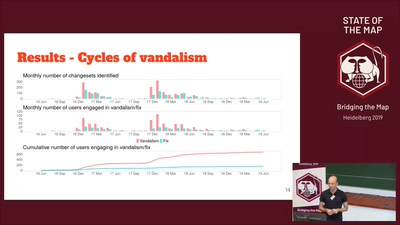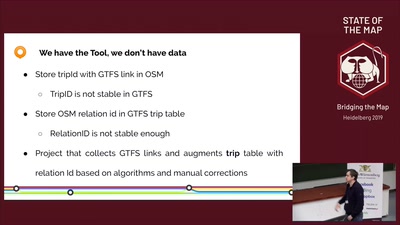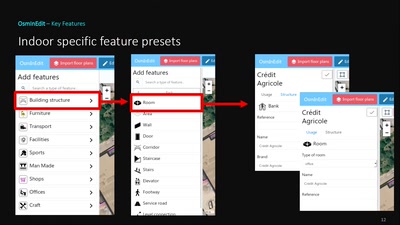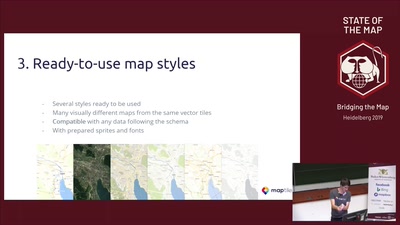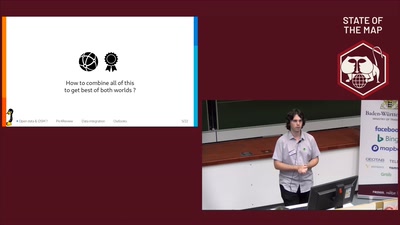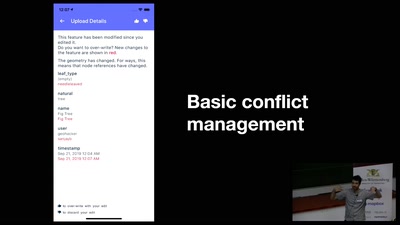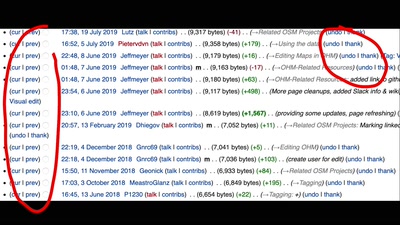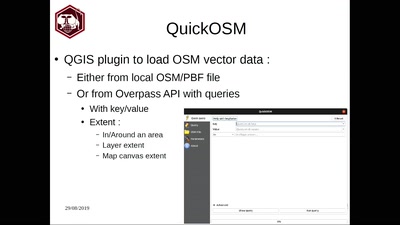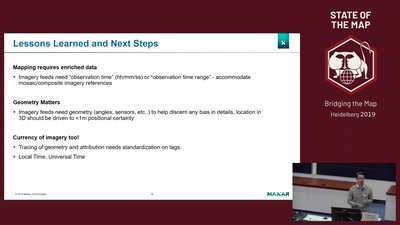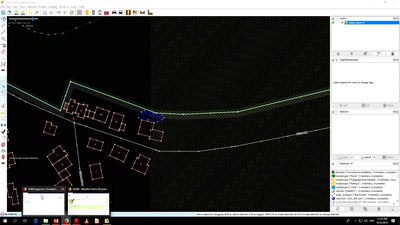Osmose-QA : MapCSS, OpenData and Mapillary
Osmose-QA is a Quality Assurance tool pointing issues on map, but also able to compare external data set to OpenStreetMap. First part is about the new support of MapCSS rules in Osmose-QA and the opportunity to share rules with JOSM and other tools. Second part is on integration of external data from Mapillary photography objects extracted by AI and from OpenData. It is also on the challenge to deals with lots of OpenData.
At the beginning, Osmose-QA is a Quality Assurance tool pointing issues on map, but also able to compare external data set to OpenStreetMap.
First talk part is about the new support of MapCSS rules in Osmose-QA. MapCSS language was primarily designed as way to style map objects, it look like the web styling language CSS. The base of MapCSS is to use selectors to filter objects. JOSM already use it for map styling and validator. This new implementation of MapCSS in Osmose-QA allows to write rules more easily. It also allow to reuse JOSM validator rules set. Next step would be to run Osmose rules in JOSM. It’s a great opportunity to share rules across tools and projects. But come the question on how to share and manage this rules while considering tools particularities.
Second talk part is on external data comparison (aka conflation) with OpenStreetMap. It permits to point issues and evaluate the coverage, lastly it allows fixing and integration into OpenStreetMap. The more we wait, the more there is OpenData sets available. How Osmose-QA can try to addresses this issue of already too many OpenData set available. Beside OpenData from authorities we also have street objects extracted by Mapillary AI from street photography. Finally, what about the limit of the current model and how we may go further.

